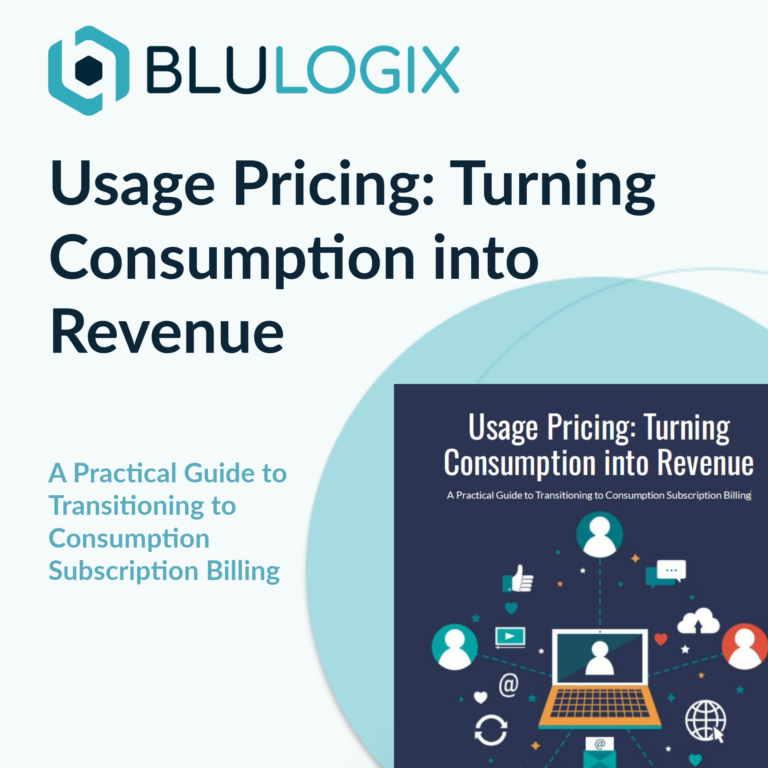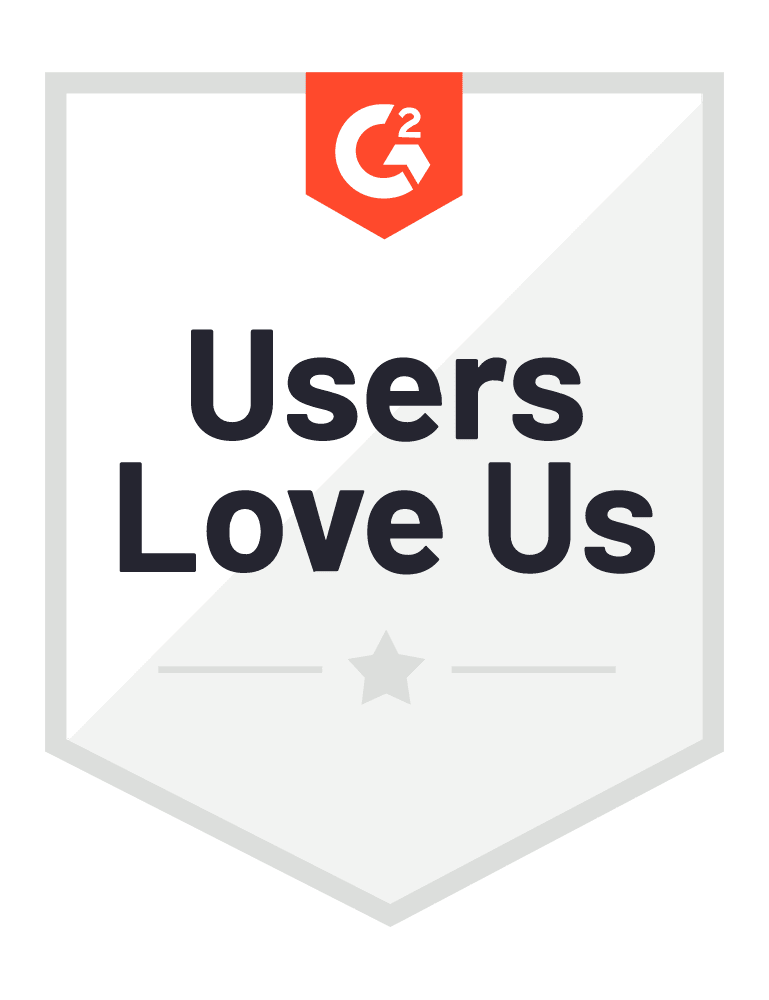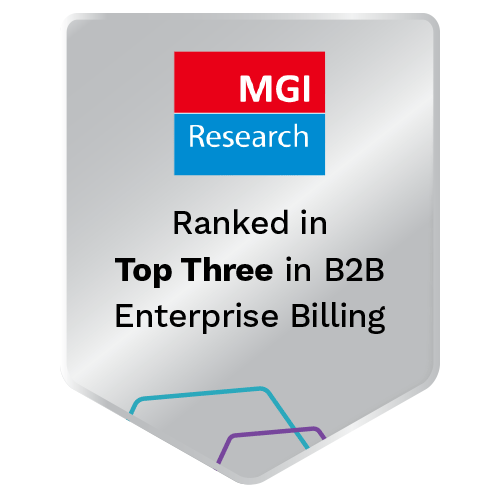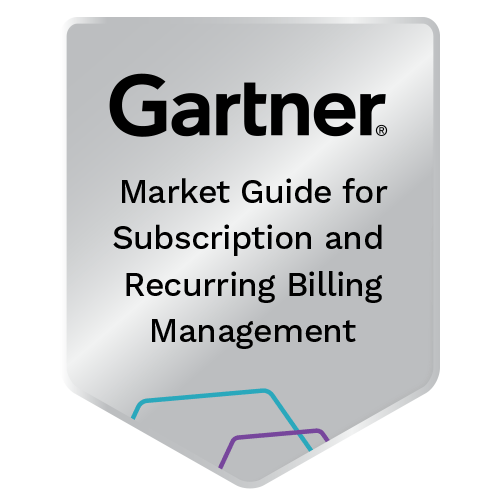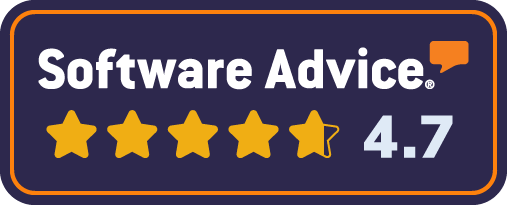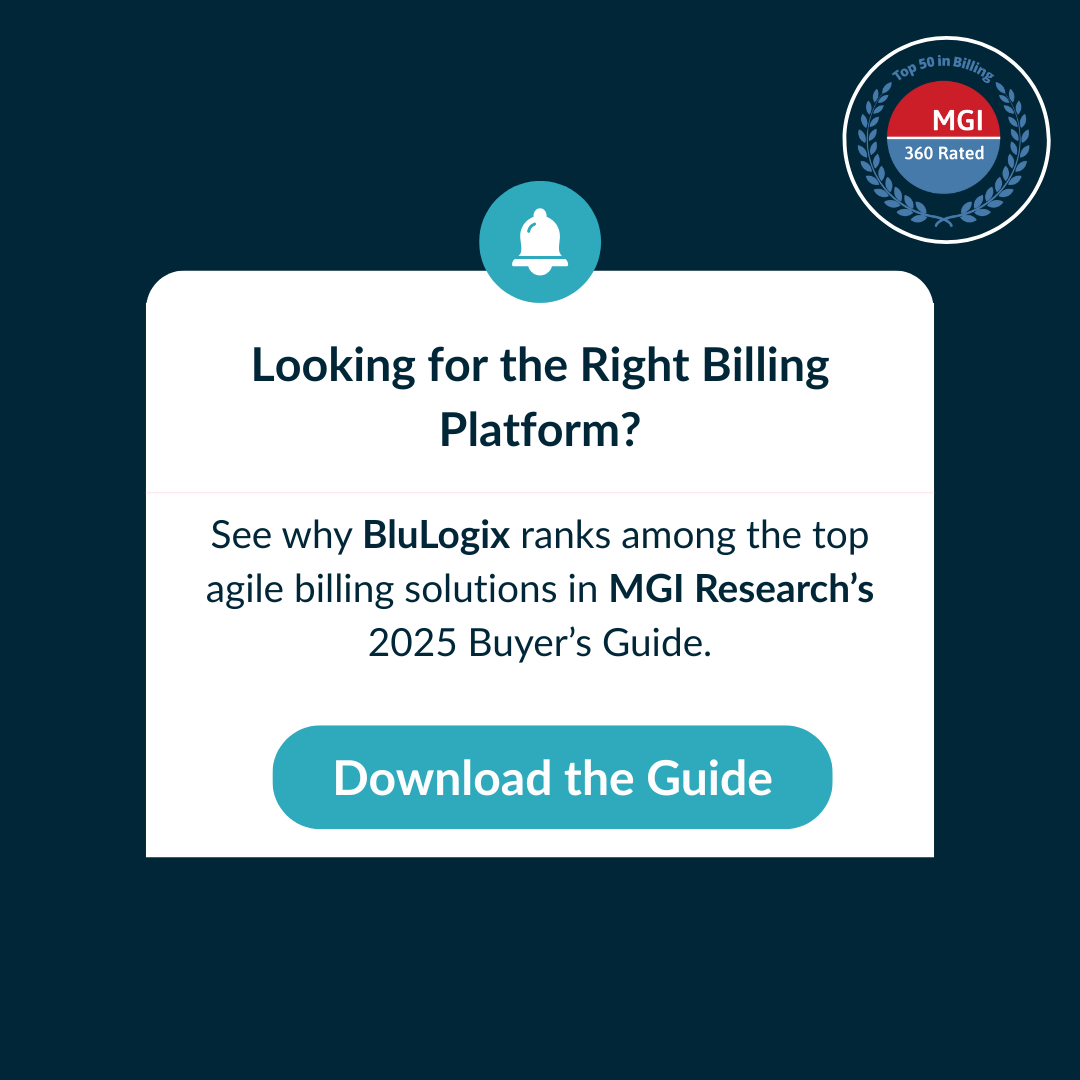Blulogix Whitepaper
Usage-Based Billing: Transforming Consumption into Revenue with Usage Pricing
A Practical Guide to Transitioning to Consumption Subscription Billing
Table of Contents
The Usage Pricing Revolution: Managing Data to Unlock Success
The landscape of modern business is undergoing a transformative shift, notably centered around the evolution of billing methodologies, particularly toward usage-based pricing. This whitepaper aims to delve into the complexities and nuances of usage-based billing. By dissecting fundamental concepts, addressing challenges, and highlighting opportunities, this document provides comprehensive insights for businesses navigating this dynamic landscape.
Exploring Perceptions
Discussions on usage billing often trigger a spectrum of perceptions, including assertions that usage billing is imminent, it’s uncomplicated, or it’s too intricate. These varied perspectives underscore the necessity of a deeper comprehension of this evolving billing model. Essentially, usage billing involves customers being charged based on their consumption, whether it’s electricity, data, API calls, or transaction volumes.
Dispelling Misconceptions
Contrary to popular belief, usage billing isn’t a direct adversary to subscription-based models. In reality, these models often coexist, offering diverse pricing structures aligned with customer needs. While subscriptions involve fixed charges, usage billing enables a more personalized approach, aligning costs directly with consumption.
The Technological Imperative
Successful implementation of usage-based pricing requires substantial technological investment. A robust billing solution capable of accommodating diverse usage billing structures is essential. This system should not only process raw usage data into invoices but also provide scalability and audit capabilities according to the business’s evolving demands.
The Art of Pricing Strategies
Businesses leveraging usage billing often deploy diverse pricing strategies. These strategies might involve minimum spend requirements, tiered pricing based on consumption levels, or dynamic rating based on external factors like time of day or geography. Hybrid schemes enable customers to start with a basic plan and gradually upgrade.
Complexity Unveiled: Postpaid vs. Prepaid Models
Usage billing encompasses varied models, including postpaid and prepaid structures. Postpaid billing involves invoicing after usage, whereas prepaid models require upfront payment for a predetermined usage block. Each model presents its own complexities, from managing risk factors in postpaid scenarios to controlling usage limits in prepaid arrangements.
Evolutionary Trends: From Utilities to Tech Giants
Although usage billing historically tied with major utilities and telecommunications companies, its adoption has expanded into the tech industry. Many prominent tech companies and cloud service providers have embraced consumption-based billing, making it accessible even to smaller businesses and startups, lowering the entry barrier.
Data Staging and Mediation
The core principle behind the designation of this section as “Data Staging and Mediation” isn’t solely about the data itself; it’s about the data within the context of a process. Both elements significantly impact the successful implementation of data usage.
In prior systems, consumption-based or usage-based billing existed in various industries for decades. However, the transformation in today’s digital landscape goes beyond mere usage- based billing. It encompasses multiple data sources, diverse data types, and varied loading timelines within the billing process.
For a robust foundation in effective data staging and mediation, three key aspects are crucial:
- Real-time Ingestion: The definition of real-time data ingestion has evolved. It’s not just about loading data immediately for charging purposes. Today, it involves loading data when it becomes available and charging it when needed. The change in real-time aspects is essential, especially for advanced usage pricing models like dynamic or smart pricing.
- Complete Data: Incomplete data leads to inaccuracies, impacting billing, revenue, and overall business scalability. Therefore, ensuring comprehensive data collection from sources and establishing a reliable data processing process is imperative.
- Accurate and Consistent Data: Clean and consistent data is essential. Inaccuracy or inconsistency in the data adversely affects the billing process, necessitating the importance of accuracy and consistency.
Evolving Definition of Real-Time
The conventional perception of real-time was centered on loading data instantaneously for immediate charging and pricing. However, today’s digital paradigm calls for a more nuanced understanding. Pricing rules often rely on various data types, especially in more advanced pricing structures like dynamic pricing. This necessitates additional data dependency, shifting the definition of real-time.
The Expanding Data Landscape
Data influencing usage-based business models isn’t limited to consumption data alone. It includes data from service platforms, third-party providers, licensing information, reconciliation of previously processed data, waiting for invoices from providers, and integrating with CRM systems.
The impact goes beyond consumption data, encompassing multiple data sources that are integral to the billing process. This emphasizes the necessity of the right tools, processes, and datasets for a successful strategy in data mediation.
Data Loading and Billing Stages
Data relevant to usage and billing gets loaded at various stages of the billing process from different systems, including customer details, orders, entitlements, catalog data, service details, and more. These diverse data types influence different stages of the billing process and are crucial for accurate billing and usage metrics.
Mediation in Today's Digital World
Unlike legacy mediation systems that processed all data before commencing billing, today’s digital mediation is more interactive. Data loads at different times from different platforms, creating dependencies and requiring timely reconciliation between multiple sources. This distinction highlights the need for a more agile and interactive data staging and mediation process.
Challenges and Impacts of Failed Data Processes
Several challenges can derail the data staging and mediation process, leading to significant impacts:
- Inaccurate Data: Inconsistent, incomplete, or erroneous data disrupts the flow of the billing process, requiring robust processes to handle exceptions.
- Data Incompleteness: Incomplete data content or format mismatches pose compatibility challenges between different data sources.
- Lack of Transformation: Insufficient transformation, especially in reconciling data from various sources or pre-existing data within the billing platform.
- Unresolved Exceptions: Actions needed for missing or duplicate data, new customer creation, or customer terminations without proper data reconciliation.
- Overload Impact: Overloading data or platforms hampers efficiency, necessitating scalable solutions and efficient validation tools.
Implications of Failed Data Processes
The fallout from failed data processes includes revenue loss, operational challenges, customer dissatisfaction due to billing errors, compliance risks, delayed invoicing, integration complexities, scalability issues, and an increased risk of manual errors.
Mitigating Challenges: The Role of Tools and Processes
The key to overcoming these challenges lies in adopting the right tools and processes:
- Interactive Dashboards: Empowering users with real-time insights, statistics, and actionable suggestions.
- Integration Tools: Employing robust integration mechanisms to streamline data loading from diverse sources.
- Standardization and Governance: Implementing standardized processes and governance frameworks.
- Real-time Data Management: Managing data dynamically at the right time to ensure accuracy and consistency.
Future Considerations: Dynamic and Smart Pricing
While AI presents a promising tool, its maturity in accurately handling numerical data in the industry is still evolving. Therefore, while AI can complement mediation, replacing mediation entirely with AI might not be viable yet.
In the realm of pricing, two aspects are gaining prominence – dynamic pricing and smart pricing. Dynamic pricing calculates charges on-the-fly based on usage. Smart pricing takes it a step further by incorporating additional data dependencies for more informed pricing decisions.
Conclusion
Data staging and mediation are intricate processes, intricately woven within the fabric of usage-based billing. The success of these processes hinges upon integrating the right data, employing robust processes, and leveraging cutting-edge tools. Embracing evolving technologies like interactive dashboards, robust integrations, and advanced pricing models will undoubtedly shape the future of usage-based billing strategies.
About BluLogix
Handling a full range of billing scenarios, from the very simple to the most advanced and complex, including multiple usage-based microtransactions per day, while servicing multiple channels and different tiers of customers and recurring subscriptions, BluLogix offers a cohesive overall approach to the recurring revenue monetization process.
Ready to see how it works? Book a demo today with one of our billing experts below and we’ll show you how BluLogix accelerates revenue growth, increases profitability, enables scalable processes and empowers channels.
Reviews

Michael R.
President, Allnet Air Inc. - Telecommunications
Best Outsourced Billing for Mobility

Karen R.
Manager, Cloud Billing - Computer Software
BluLogix has been a great partner.
“Over the last several years, I have seen continual enhancements and additions to the platform. BluLogix has created a comprehensive solution for users. They provide great communication regarding upgrades and address concerns thoroughly and timely.”

Sara K.
Marketing, Graphic Design & Social Media Management - Marketing and Advertising
Fantastic platform. Recommend!

